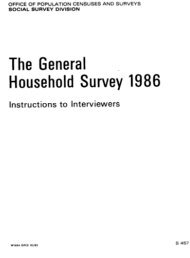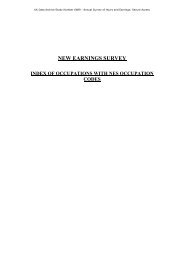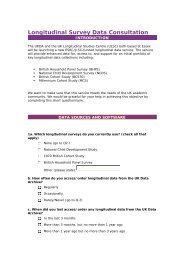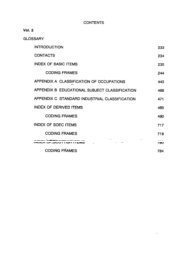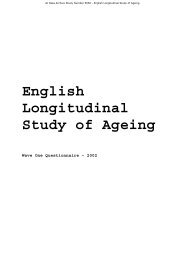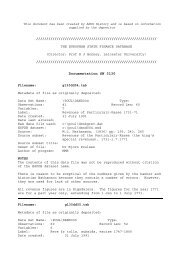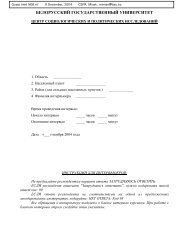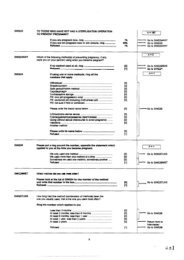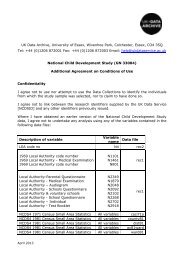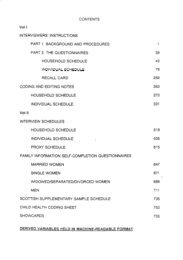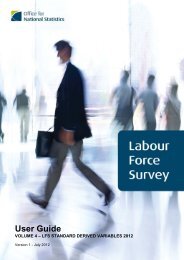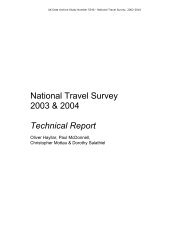ESDS Annual Report, 2008-2009
ESDS Annual Report, 2008-2009
ESDS Annual Report, 2008-2009
Create successful ePaper yourself
Turn your PDF publications into a flip-book with our unique Google optimized e-Paper software.
www.esds.ac.uk/government<br />
Contact and collaboration with<br />
data users and producers<br />
User meetings bring together data producers and<br />
users from academia, government departments and<br />
voluntary organisations. They provide a very important<br />
forum for discussion of new survey developments,<br />
user consultation and dissemination of new research<br />
findings.<br />
Six meetings are now held each year – each on a<br />
different survey or set of surveys and each with about<br />
eight short presentations. The programme is developed<br />
in collaboration with the survey producer (Natcen or<br />
ONS) and, where appropriate, the relevant government<br />
departments, such as the Home Office or Department<br />
of Health. Meetings are typically attended by 60-70<br />
people and all presentations are published on the<br />
<strong>ESDS</strong> web site, forming a widely-used repository of<br />
information on the surveys. These meetings often have<br />
valuable outcomes; for example, following discussions<br />
at a recent Family Resources Survey meeting ONS<br />
agreed to deposit the Households Below Average<br />
Income dataset with the UK Data Archive – a dataset<br />
widely used by government to chart changes in income<br />
inequality. A less tangible outcome is the opportunity<br />
for discussion – both formal and informal – between<br />
a wide range of users, representative of the funding<br />
departments and the data producers.<br />
Wherever possible the aim is to develop resources<br />
in collaboration with the data producers. The recent<br />
guide to the Expenditure and Food Survey provides an<br />
example where the service has worked in collaboration<br />
with the Department for Environment, Food and Rural<br />
Affairs (Defra), who are responsible for the sections of<br />
the survey on food purchases and ONS who run the<br />
entire survey. This ensures that the final guide, which<br />
is available online, provides material which is of value<br />
to a wide spectrum of users.<br />
Outreach activities<br />
1 2 E C O N O M I C A N D S O C I A L DATA S E RV I C E A N N UA L R E P O RT AU G U S T 2 0 0 8 – J U LY 2 0 0 9<br />
As a result of consultations aimed at achieving greater<br />
use of government surveys, a theme-based poster series<br />
has been developed which highlights the benefit and<br />
potential of the survey series. In autumn <strong>2008</strong>, a series<br />
of A4 sized posters focusing on crime were sent to over<br />
400 UK social science departments with a request to<br />
display and circulate these materials. In September<br />
<strong>2009</strong>, another set of posters on the topic of health were<br />
sent to UK social science departments. Other outreach<br />
is achieved by twice-yearly newsletter, regular email<br />
updates to users, conference presentations and regular<br />
hands-on introductory workshops.<br />
The range of web-based resource increases annually<br />
as more user guides are added to the collection. These<br />
include theme-based guides to help users identify<br />
relevant topics on health, crime, consumption – and<br />
methodological guides - for example, on using the<br />
government surveys to analyse change over time, or on<br />
using hierarchical data, matching files and pooling data.



